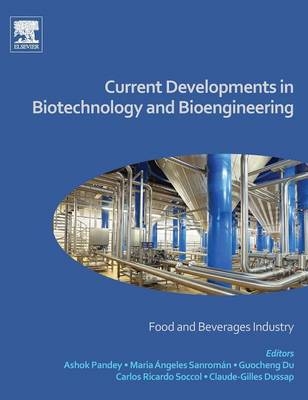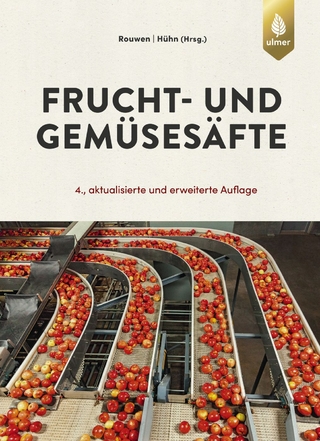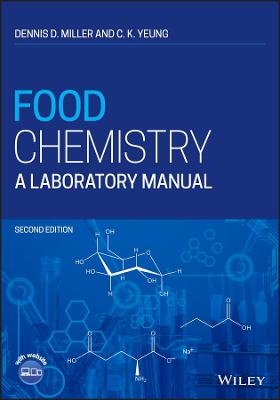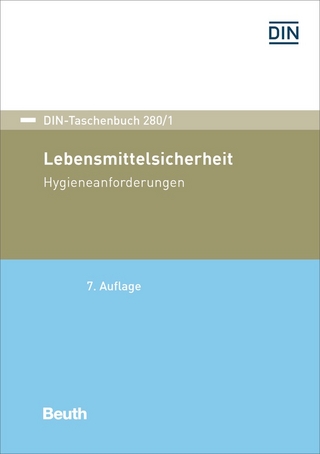
Current Developments in Biotechnology and Bioengineering
Elsevier Science Ltd (Verlag)
978-0-444-63666-9 (ISBN)
As there have been significant advances in the areas of food fermentation, processing, and beverage production, this title highlights the advances in specific transformation processes, including those used for alcoholic beverage and fermented food production. Taking a food process and engineering point-of-view, the book also aims to select important bioengineering principles, highlighting how they can be quantitatively applied in the food and beverages industry.
Professor Ashok Pandey is currently Executive Director, Centre for Energy and Environmental Sustainability-India, Lucknow. He is HSBS National Innovation Chair (Biotechnology) and is/has been Visiting/Distinguished Professor in many countries. His major research and technological development interests are industrial & environmental biotechnology and energy biosciences, focusing on biomass to biofuels & chemicals, waste to wealth & energy, etc. Professor Guocheng Du is the Dean of School of Biotechnology, Jiangnan University, China. He is the distinguished professor of Changjiang Scholars, Ministry of Education, China. His current main research focus is on bioprocess engineering and metabolic engineering. He has about 200 publications/communications, which include 52 patents, 8 books, 160 original and review papers, etc. He won two Second Prizes of State Science and Technology Award in 2006 and 2012, respectively. He has been conferred Honorary Doctorate degree from Jiangnan University, China. Professor Guocheng Du is deputy director in the committee of biochemical engineering modelling and control, Chinese Society for Microbiology, and deputy director of Beer Branch, China Alcoholic Drinks Industry Association. He is the associate editor of Journal of the Science of Food and Agriculture and the editorial board member of Bioresource Technology. Dr. M. Angeles Sanroman is graduated in Chemical Engineering from the University of Santiago de Compostela in 1987. She did her PhD degree in Chemical Engineering Department, focusing on development of bioreactor and cell immobilization techniques. She then joined the Chemical Engineering Department of University of Vigo in 1991 as Assistant Professor. She founded the Bioprocess Engineering Group. This group is a multidisciplinary research group that joins knowledge and efforts in the development of technologies to be applied in several industrial sectors. The research comprises design, optimization and innovation in chemical, biochemical and environmental process. Since 1994 she is Associate Professor of Chemical Engineering and she has been member of several Scientific Societies and Editorial Boards. Nowadays, the main research lines carried out are Biodegradation of recalcitrant organic compounds, Solid state fermentation, Enzymatic technology, Bioreactors design and Advanced Oxidation Technologies. Her interests have recently been extended to bioenergy and currently she is developing a project about microbial fuel cell.The results of these research works have been published in 175 papers, 5 patents, 15 chapters of books, more than 250 research communications and 30 projects. She has supervised 14 PhD students and 30 MSc lab works. Professor Carlos Ricardo Soccol is the research group leader of DEBB (Department of Bioprocess Engineering and Biotechnology) at the Federal University of Paraná, Brazil, with twenty years of experience in biotechnological research and development of bioprocesses with industrial application. He is graduated in Chemical Engineering (UFPR, 1979), Master in Food Technology (UFPR, 1986) and Ph.D. in Genie Enzymatique, Microbiologie et Bioconversion (Université de Technologie de Compiègne,- France, 1992). Postdoctor at Institut ORSTOM/IRD (Montpellier, 1994 and 1997) and at the Université de Provence et de la Méditerranée (Marseille, 2000). He is HDR Professor at Ecole d'Ingénieurs Supériure of Luminy, Marseille-France. He has experience in the areas of Science and Food Technology, with emphasis on Agro-industrial and Agroalimentary Biotechnology, acting in the following areas: bioprocess engineering and solid state fermentation, submerged fermentation, bioseparations, industrial bioprocesses, enzyme technology, tissue culture, bio-industrial projects and bioproduction. He is currently Coordinator of Master BIODEV-UNESCO, Associate Editor of five international journals and Editor in Chief of Brazilian Archives of Biology and Technology Journal. Professor Soccol received several national and international awards which include Science & Technology award of the Govt. of Paraná (1996), Scopus/Elsevier award (2009), Dr. Honoris Causa, University Blaise Pascal-France (2010), Outstanding Scientist – 5th International Conference on Industrial Bioprocesses, Taipei, Taiwan (2012), Elected Titular Member of the Brazilian Academy of Sciences (2014). He is a technical and scientific consultant of several companies, agencies and scientific journals in Brazil and abroad. He has supervised and formed 96 Master Science students, 48 PhD students and 14 Post-Doctorate Students. He has 995 publications/communications which include 17 books, 107 book chapters, 270 original research papers, 557 research communications in international and national conferences and has registered 44 patents. His research articles until the moment were cited (Scopus DataBase) 5600 Times with Index h=36. Prof Claude-Gilles DUSSAP is graduated in Chemical Engineering from the University of Toulouse in 1978. He did her PhD degree in Chemical and Biochemical Engineering Department, focusing on development of bioreactor at the University Blaise Pascal (Clermont-Ferrand). He is presently head of the team Chemical and Biochemical Engineering in the Institut Pascal (University Blaise Pascal -- CNRS). He has been much involved in the analysis of the relationships, which exist between the physiological responses of microorganisms and bioreactors environment. This includes insightful investigation in metabolic engineering (metabolic fluxes distribution, control and regulation of metabolism) and thorough analysis of bioreactor performances regarding the mass, heat, light-energy transfer and mixing properties of reactors. He has a strong experience in mathematical modelling of biological kinetics, thermodynamical equilibrium properties of aqueous solutions and of reactor characteristics. He has a track record experience in the design and the mathematical modelling of MELiSSA (Micro-Ecological Life Support System Alternative) ecosystem, which is the biological life support system developed by European Spatial Agency (ESA) for long duration spatial missions. His main domain of expertise covers all the process engineering aspects of the bioreactors design, modelling, scale-up and control in relation with the food quality and nutritional properties of food recipes for spationauts. He has been in charge of the definition of Life Support issues in the European framework program AURORA. He is member of the evaluation committee of European Science Fondation. His main research activities concern Chemical engineering; Metabolic engineering: metabolic fluxes calculation; Mass and energy transfer modelling and assessment of coupling with metabolic limitations; Applied thermodynamics (modelling of equilibrium properties); and Thermokinetic modelling and application of Thermodynamic of Irreversible Processes to biotransformations. His interests have been extended to bioenergy production processes and assessment of environmental impact of biotechnology processes regarding 2G and 3G biofuels. The results of these research works have been published in 150 papers. He has supervised 25 PhD students and 70 MSc lab works.
Section 1: Food and Fermentation 1. Oriental fermented foods 2. Fermented dairy products 3. Fermented meat products 4. Fermented fruits and vegetables 5. Fermented cereal products 6. Food enzymes 7. Nutraceuticals and food additives 8. Functional foods 9. Food safety
Section 2: Alcoholic Beverages 10. History, classes and regulation of alcoholic beverages 11. Markets and trends in alcoholic fermented beverages 12. Microbiology of alcoholic fermentation 13. Genetics improvements of beverages starter cultures 14. Biochemistry of wine and beer fermentation 15. Beers 16. Wines – white, red, sparkling, fortified, and Cider 17. Mead and other fermented beverages 18. Cognac and Armagnac 19. Whiskeys 20. Rum and cachaça, CR Soccol 21. Tequila and Pisco 22. Flavored spirits
| Erscheinungsdatum | 07.09.2016 |
|---|---|
| Verlagsort | Oxford |
| Sprache | englisch |
| Maße | 191 x 235 mm |
| Gewicht | 910 g |
| Themenwelt | Technik ► Lebensmitteltechnologie |
| Technik ► Umwelttechnik / Biotechnologie | |
| ISBN-10 | 0-444-63666-8 / 0444636668 |
| ISBN-13 | 978-0-444-63666-9 / 9780444636669 |
| Zustand | Neuware |
| Haben Sie eine Frage zum Produkt? |
aus dem Bereich


